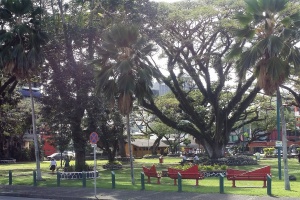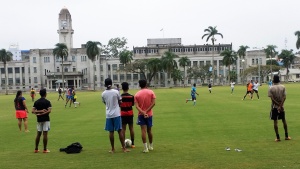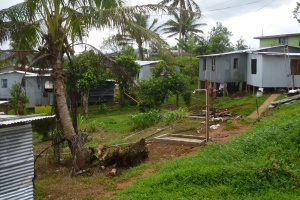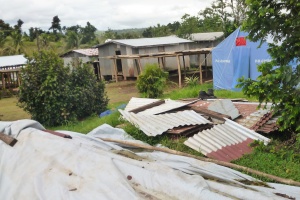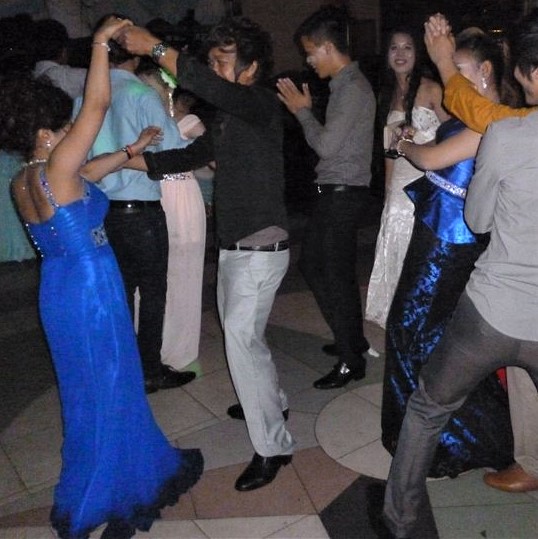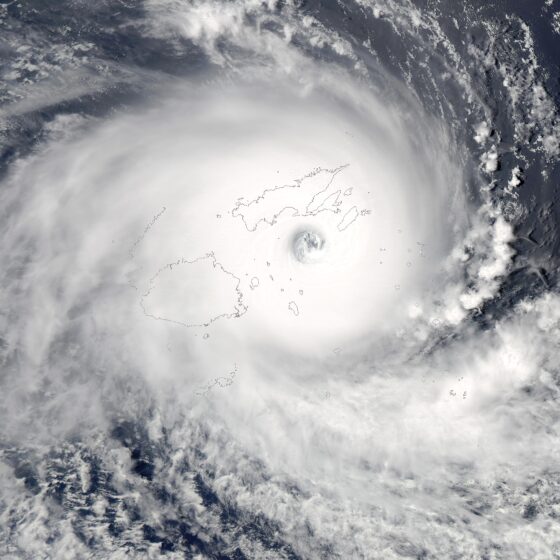
In the Wake of Winston
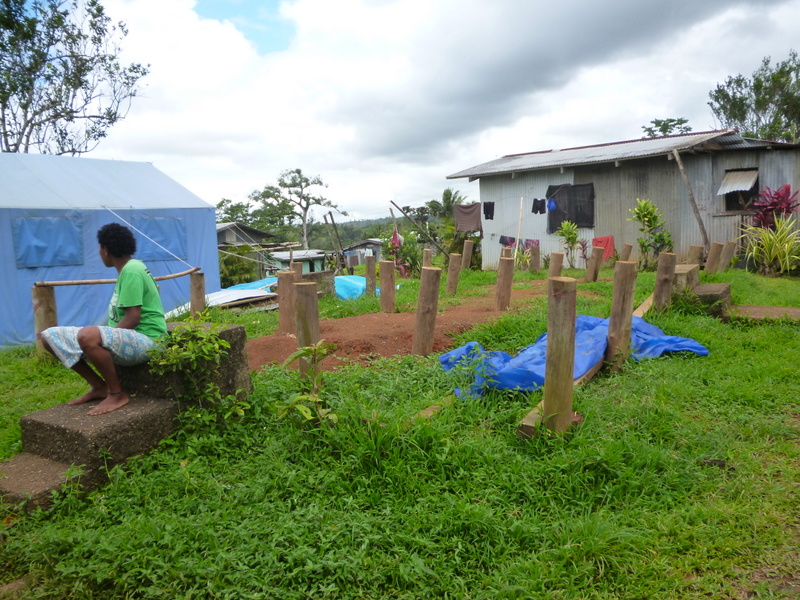 Satellite pictures confirmed it. News services couldn’t leave it alone. A category 5 tropical cyclone, the most intense ever on record in the Southern Hemisphere, slowly working across the Pacific with Fiji directly in its path. We sat glued to weather reports, news bulletins, updates and finally, watched in horror as it struck.
Satellite pictures confirmed it. News services couldn’t leave it alone. A category 5 tropical cyclone, the most intense ever on record in the Southern Hemisphere, slowly working across the Pacific with Fiji directly in its path. We sat glued to weather reports, news bulletins, updates and finally, watched in horror as it struck.
On February 20, 2016 at 1:30pm Fiji time, Winston made landfall with winds of 300 klm per hour. We watched real time images as the Fijian archipelago disappeared under cloud. Underneath, who would know unless you were there. Silence, for us at home. We held our breath until communication could be restored. As Winston dissipated and moved on, satellite pictures revealed the story.
Seven months later, looking for a quick offshore getaway, Fiji, a three and half hour flight north-east of Brisbane offered a cheap deal. Winston was long gone. In fact, it didn’t even cross my mind. Nadi Airport echoed with live traditional music and song and shouts of “Bula” which set the tone for a tropical island getaway.
I hooked a bus to the capital Suva, four hours to the east coast, sharing the seat with an elderly British woman born on the island. Once a wealthy plantation owner, circumstances changed her fortune. She and her ailing husband are trapped by government regulations which refuse them the right to sell their assets. She fears being unable to seek living conditions with better medical services for their remaining years.
Of greater concern to her are land grabs by cashed up Chinese investors who built and donated hospitals to Fiji. In return the government gifts the investors sweeping tracts of pristine coastline extending into fertile jungle covered mountains.
The road into Suva shows evidence of the devastation Winston caused. Infrastructure requiring building materials, labour, and money is languishing. Outside the city, dotted across the dense tropical landscape, small villages remain isolated. Power and communications are down in many areas. Hundreds of homes destroyed. Entire villages flattened. Suva has lifted itself and returned to a bustling, colourful, noisy, port city. Locals are pragmatic and take in their stride the good with the bad of living in a volatile tropical climate. The vegetation, thick and lush, regenerated itself
Gabe is 27, from the island Koro, four hours by boat to Suva. He is looking for work to buy building materials, to enable his people a chance to rebuild. Seven months and there’s no sign of relief. On his island people live in makeshift shelters. After Winston it took seven days before authorities got to them. There was no water. They ate whatever could be found or picked from vegetation left standing or strewn. The dead were left where they fell.
Seb is employed as a driver for an international company in Suva. His girlfriend Andra, lives two hours away by truck then bus in a small hillside village. She has made the journey to buy sugar and flour, still in short supply throughout their village. They invited me to visit. We hit the supermarket and filled two trolleys. In a rented car with Seb at the wheel any repaired road was an invitation to commit multiple traffic violations. The journey home considerably quicker than a bus.
The sight of quaint cottages dotted among verdant jungle is illusory. All the houses are damaged. Walls and rooves replaced by tarps held together with ropes. Iron and wood salvaged from wreckage make temporary shelters replacing the family home. In Seb’s case, no house at all, it has blown away. All that remains is a set of cement steps that once led to the front door. In the ground, wooden stumps await the rebuild. His mother sleeps on the ground in a tin shed. Everywhere across the village you hear music, singing, and the squeals of children’s laughter at play.
Back home a news report caught my attention. Vision of a boat in Suva harbour, decks stacked with timber and sheets of roofing iron lashed down by ropes. A voice-over proudly declares “today we send our first shipment of material to the re-building effort on Kora island.”
That’s Gabe’s island, four hours away by boat, eleven months after cyclone Winston left town.



